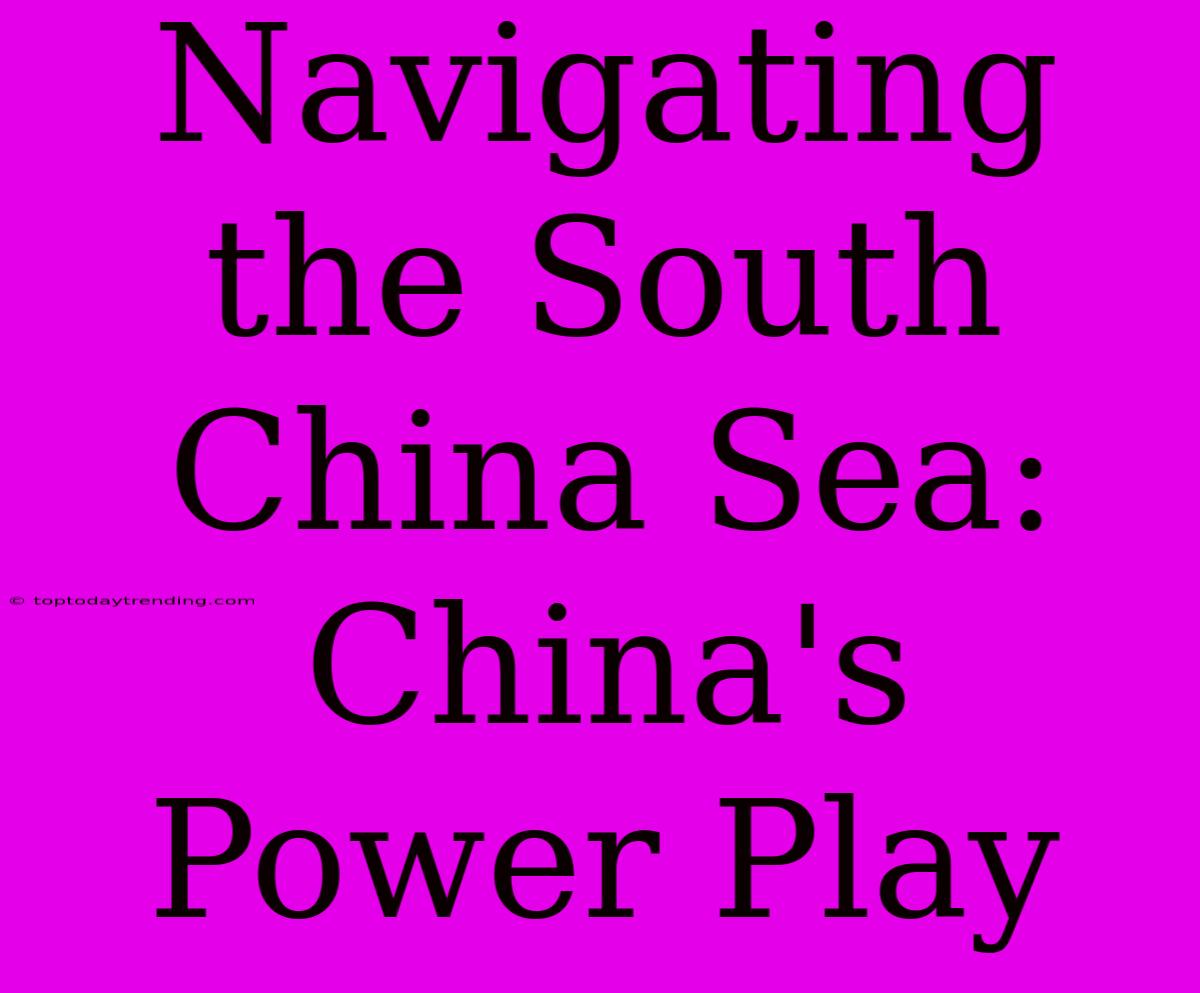Navigating the South China Sea: China's Power Play
The South China Sea (SCS) has become a geopolitical flashpoint, with China's assertiveness in the region raising tensions with neighboring countries and the United States. This article delves into the complex dynamics of the SCS, exploring China's ambitious claims, the implications of its actions, and the potential consequences for regional stability.
The South China Sea: A Vital Maritime Crossroads
The SCS is a vital waterway, connecting major economies in East and Southeast Asia. It's a crucial shipping route for global trade, rich in natural resources, and a source of valuable fishing grounds. This strategic significance has attracted the interest of various nations throughout history, but China's recent actions have dominated the scene.
China's Nine-Dash Line: An Ambiguous Claim
China's territorial claims in the SCS are based on its so-called "nine-dash line", a historical map first appearing in the 1940s. This line encompasses almost the entirety of the SCS, including islands, reefs, and maritime features claimed by other nations like Vietnam, Malaysia, Brunei, the Philippines, and Taiwan.
This ambiguous claim has no basis in international law, and its historical legitimacy is contested by neighboring countries. The nine-dash line has been a constant source of friction, fueling territorial disputes and exacerbating existing tensions.
China's Assertive Actions: Building Islands and Militarization
China's assertiveness in the SCS extends beyond its territorial claims. It has been actively reclaiming land, building artificial islands, and deploying military assets on these newly constructed features. These actions have been met with condemnation from other countries, who see them as a blatant attempt to solidify China's control over the disputed areas.
The militarization of these islands has escalated tensions, raising concerns about potential conflicts and the militarization of the region.
The United States: A Counterbalance to China's Influence
The United States, with its longstanding commitment to freedom of navigation and the international rules-based order, has become increasingly vocal in its opposition to China's actions in the SCS. The U.S. Navy regularly conducts freedom of navigation operations in the region, challenging China's claims and asserting the right of all nations to operate freely in international waters.
These actions have fueled tensions between the two superpowers, adding another layer of complexity to the already volatile situation.
Implications for Regional Stability: A Balancing Act
China's actions in the SCS have significant implications for regional stability. The potential for conflict, particularly between China and the United States, remains a major concern. The militarization of the SCS could lead to a dangerous arms race and destabilize the region, potentially affecting global trade and energy security.
However, the SCS also represents an opportunity for cooperation. Many countries in the region recognize the need for peaceful resolution of disputes and collaborative management of the shared resources.
The Way Forward: Diplomacy and International Law
Navigating the complex dynamics of the SCS requires a delicate balance of diplomacy, cooperation, and adherence to international law. The international community must hold China accountable for its actions and ensure that all parties respect the principles of freedom of navigation, the peaceful resolution of disputes, and the rule of law.
Conclusion: A Strategic Crossroads
The South China Sea remains a critical geopolitical crossroads, with China's assertive policies creating a volatile environment. The world is watching as China's power play unfolds, with the potential consequences for regional stability and the global order yet to be fully determined.
Keywords: South China Sea, China, Nine-Dash Line, Territorial Disputes, Freedom of Navigation, Militarization, US Navy, Regional Stability, International Law, Geopolitics, Power Play.

